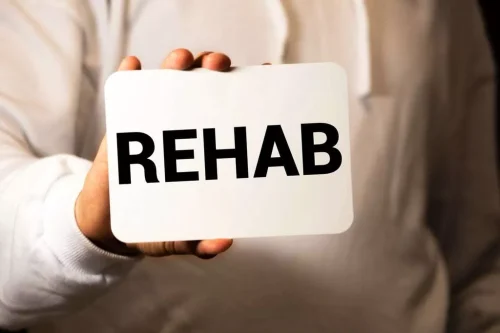The Health and Mood-Boosting Benefits of Pets

For most of our day, we don’t think about breathing – our body breathes for us. However, we tend to breathe more shallowly when we don’t focus on breathing, so a simply focus on the intake of air, holding, and exhaling can bring more oxygen into our bodies, and calm our thoughts. For more, follow guided breathing techniques in the Calmer Community. As with any skill, your ability to relax improves with practice. Don’t let your effort to try relaxation techniques become yet another stressor. Whether your stress is out of control or you’ve already got it tamed, you can benefit from relaxation techniques.
#4. Defend your time and avoid schedule compression
- It can also help you address harmful thought patterns and give you a space to process and express your emotions.
- But as a self-appointed expert of the short-term trip, here are some tips to make the most of your time off.
- Just like exercise, finding the right mental health exercises and relaxation activities can take a few tries.
- Switching up your routine can help you step out of work mode and into relaxation.
Whether you have a high-pressure job or not, it’s essential to carve out time for yourself after work. Unwinding by stepping away from work-related thoughts and activities and allowing our minds and bodies https://ecosoberhouse.com/ to relax can improve your wellbeing, boost your mood, and enhance your productivity at work the next day. This can help reduce overall stress and create balance between your professional and personal life.

Summary To Help You Destress After a Long Day of Work
- Keeping a journal to track your stress triggers and reactions may help.
- Experiencing work strain is unavoidable — even if you love what you do.
- Researchers say the brain is rewiring and trying to learn from the experience so you can handle it differently next time.
If the stressors can’t be resolved on your own, work with your boss to address the issues and come up with solutions. It helps to present realistic and feasible suggestions of your own, suggests Dr. Pratt. He and the APA also note that employee health is linked to better productivity and lower turnover, so employers should want to work toward meaningful resolutions. You may be able to diminish work stress by changing certain habits. Long-term stress can lead to headaches, digestive issues, sleep disorders, worsened asthma, depression and anxiety.
Recognizing High-Functioning Anxiety & 6 Tools to Manage It
Engaging in fun activities with loved ones can provide a much-needed break from work-related worries while strengthening social bonds. Engage in creative expression without decision-making or problem-solving tasks. The process of coloring activates the brain’s frontal lobe and can help you focus on one thing so you can relax, making coloring one of the easiest, and maybe most fun, ways to de-stress from work. The American Institute of Stress notes that Americans are the most stressed out group in the world. In fact, the stress level in this country is 20 percentage points higher than the global average. The same report found that a whopping 94% of workers say they feel stressed at work.
- Dealing with stress at work may be easier if you anticipate it, particularly if your work environment isn’t supportive.
- According to Dr Strauss from Cambridge Health Alliance, having something pleasant to focus on like trees and greenery helps distract your mind from negative thinking, so your thoughts become less filled with worry.
- Then, use all your senses to immerse yourself in the details.
- While perfectionism has some positive benefits, it can also be highly stressful and lead to burnout.
- Despite all the benefits, it’s important to remember that a pet is not a miracle cure for mental health issues.
Relying on a solid support network

Physical activity can help you mentally disconnect from work, providing a change of scenery and a new focus for your mind. Whether a vigorous workout or a gentle walk, find an exercise you enjoy to gain an effective tool for unwinding after work. When you’re ending a difficult workday (or workweek), it’s important to leave work at work and move on with your personal life. Instead of turning toward junk food or television, try listening to music or meditating as a way to feel calm. Keep some healthy boundaries so that you don’t get sucked back into work and can do the things you want to do. If you’re taking on too many projects, it’s time to set healthy boundaries.
A proper diet can improve mood and energy levels so you’re able to cope with work-related anxiety. Many people today battle intense stress and pressure given the professional requirements that are demanded of them daily. Needless to say, discovering how to de-stress how to destress after work after work is critical for anyone who wants to maintain a healthy work-life balance. Rescue groups try to find suitable homes for unwanted or abandoned dogs, cats, and other pets, many taken from shelters where they would otherwise have been euthanized.

Craft and create
One study found that students who washed dishes had greater states of mindfulness and positive moods. Yoga isn’t only a popular exercise for all ages, but it’s also gaining traction for decreasing stress, anxiety, and depression. According to research, yoga interrupts stress by producing an effect that’s opposite to your flight-or-fight response. A few laps around the block can help you forget previous tension and relax so you return to the situation calmer and more collected. For example, if the smell of peppermint reminds you of holidays at home, use peppermint.


